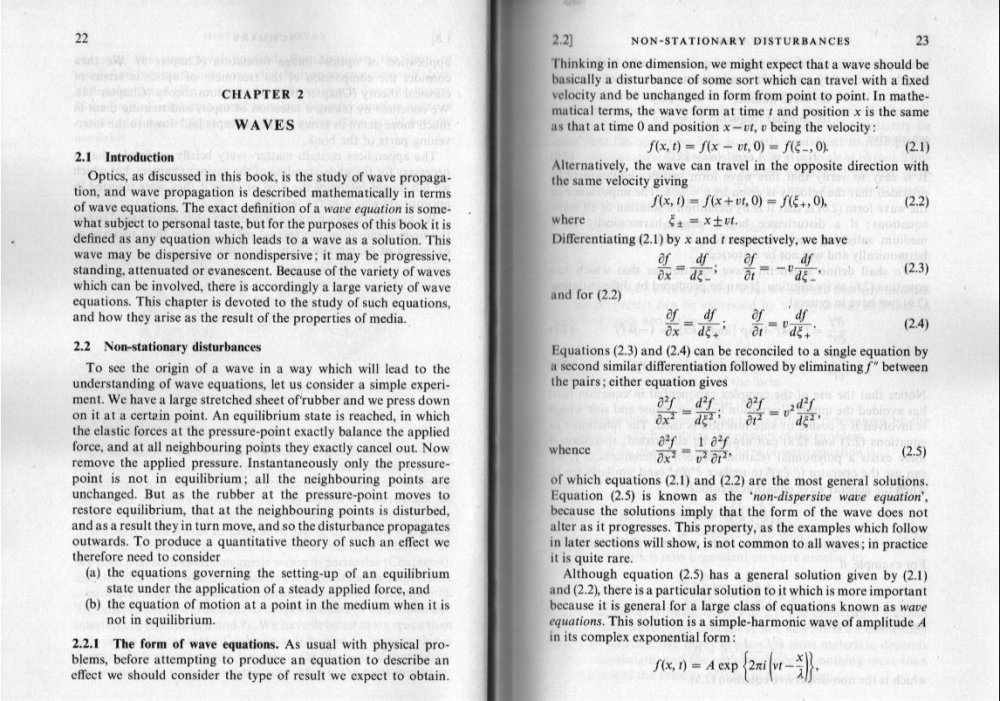Leaderboard
Popular Content
Showing content with the highest reputation on 11/03/24 in all areas
-
One thing to remember is that we do not teach any serious subject all in one go. Mathematics especially requires what I call a 'spiral approach'. Here a very simplified version is first presented, not the whole nine yards (nice expression in English for you). This will tie in with what has gone before and what may be presented in the future as the subject is revisited again and again as we work around the spiral. So in the present context fractions will be naturally introduced after addition, subtraction ,multiplication and division. Note these are treated separately and simply and usually called 'sums' (and in the olden days tables). So a fraction naturally becomes replacing the dots in the division sign with actual numbers. This fits in with your Penrose description and emphasises that it is division being talked about. Which naturally leads to division of pies, apples, sweets whatever. In turn this leads to finding out the difference between dividing a bag of sweets and a single pie. This leads back to proper and improper fractions (and perhaps vulgar fractions). The four arithmetic operations can then be revisited in the light of fractions, leading to the introduction of decimal fractions. Then we have the return to the four operations to work decimal fractions. Looking ahead to secondary school and algebra we are set up to try algebraic fractions and find out why (4-2) / (14-2) is not the same as (2-2) / (7-2. The next bump comes when the teacher needs to keep emphasising that dy/dx is not a fraction, but a complete entity in itself. Having said all this it would be very helpful if you would indicate why you are asking these questions and where you are going with the answers ?2 points
-
1 point
-
Then 1/10^15*1/10^15*1/10^15 it must have been a typo on the statement you made above. The author is using volume.1 point
-
1 point
-
1 point
-
Spotting obvious solutions first can sometimes be very helpful to obtain the non-obvious ones when the equation is polynomial and has degree > 4. Example: x5=x What would you do?1 point
-
When it was explicitly stated above that’s what’s under discussion here?1 point
-
With infinite monkeys a subset infinite number of them would type them out directly with no mistakes. Plenty of time for that...1 point
-
QFT hands us this massive number for vacuum energy density, huge, way too big. But the author’s got a neat idea: maybe that big number isn’t all piled up in one place. Instead, based on **solid physical reasons**, he’s saying it’s **spread out over \(10^{123}\) tiny SU(3) atoms** filling the whole universe. Now, when you spread that QFT energy over all these little SU(3) “atoms,” suddenly you end up with a vacuum energy density that actually fits what we observe. So, the **vacuum energy density we’re seeing isn’t just energy per cubic meter**; it’s **energy per cubic meter per SU(3) atom**. And that, my friend, is what quantum spacetime is all about here. We’re not looking at one big, smooth field of energy. We’re looking at energy carefully spread out, divided across countless little units. It’s this distribution that makes everything line up with what we measure, simple, logical, and right there in front of us.1 point
-
Cuts each slice in two, takes 5 sixths of the pizza for services rendered. I think of them in more algebraic terms. The numerator and denominator are together expressing a relationship, rather than being fully defined themselves.1 point
-
Are you not getting it yet? Look, when we’re talking about **vacuum energy density**, we’re not just dealing with energy per cubic meter. Nope, it’s **energy per cubic meter per SU(3) vacuum atom. Think of it this way: imagine you’ve got a giant pizza meant to feed an entire town. Now, instead of handing the whole thing to one person (which would be ridiculous), you slice it up and spread it out to everyone in town, giving each person a manageable slice. That’s what’s going on here with vacuum energy. In this analogy, the enormous vacuum energy from QFT is like that pizza. But instead of loading it all into one place, it’s **spread across \(10^{123}\) proton-sized SU(3) vacuum atoms** scattered throughout the universe. Each atom holds just a fraction of the energy—just like each person gets a slice of pizza. So, what we’re actually observing is the **energy per cubic meter per atom**. This breakdown per atom is what makes the observed vacuum energy density match what we see in the real universe. It’s not just energy per cubic meter, it's distributed per atom, and that’s what keeps everything nice and balanced. Yes, because we need something stable and measurable to define the volume that confines gluons. The neutron could work, but it decays into a proton. So, the proton's volume is more reliable as the one that truly confines massless gluons, since the proton doesn’t decay through any channels in the Standard Model.1 point
-
It is correct, as it explains the lowest energy density we have ever measured, the vacuum energy density, based on observations of the universe's expansion.1 point
-
Photons are completely decoupled from gluons and, fundamentally, have no interaction with dark energy either.1 point
-
If you’re after a massless, stable backdrop for the universe, gluon condensation is the way to go. It’s like an invisible field, filling space without adding weight, simple, clean, and seamless. Glueballs, by contrast, are little balls of pure glue, but they carry mass due to their binding energy. So, if you’re aiming for a truly massless vacuum structure, gluon condensation is the better choice. I looked into the author’s another paper on the cosmological constant and noticed he describes dark energy as a kind of Bose-Einstein distribution. https://papers.ssrn.com/sol3/papers.cfm?abstract_id=45983961 point
-
1 point
-
1 point
-
1 point
-
They did not demonstrate that (my emphasis). They demonstrated this:1 point
-
1 point
-
G GR does not use rest frames all reference frames are inertial . What is the definition of an inertial frame ? A frame under constant velocity. Equal free fall it is not the equivalent to a rest frame. Do you have a reading problem ? The above propertime that clock on the worldline AS PER the WIKI link........ shall I go and quote each instance I stated the clock along the worldline for you for proper time... What don't you understand about that ? Is it the term reference frame ? A reference frame is an inertial frame of reference I already have summarized it's not my fault you refuse to read or understand1 point
-
I see so we have from the topic at hand to you arguing the definitions given by GR that were not set by me. Let's make this simple in GR there is no rest frame unlike SR. In GR all observers frames of reference is the coordinate time. This is because the coordinate time is not invariant.. it is coordinate dependent. The rate of time will vary at any given coordinate as well as the observer. Got that so far ? The only invariant reference frame is the clock that follows the null geodesic worldline it is path dependent. This means it will depend on that worldline between different geometries , flat curved, Schwartzhild metric, Kerr Metric etc. This is why it's the proper time it is the only Lorentz invariant frame of reference in different geometries between different observers If you still have questions on that free to ask. I don't know your math skills but here you go http://web.mit.edu/edbert/Alexandria/notes1.pdf Now why does the wiki link specify the timelike geodesic (null geodesic) ? Well for starters c is Lorentz invariant. All observers measuring the velocity of a photon will measure the same value. Does that help to make better sense of the clock following the null geodesic ?1 point
-
Look I'm going to answer questions as I choose to answer them. At any point in time I can back up any statement I make with literature or the mathematics.. I supplied links explaining proper time and coordinate time if you choose not to read those links and attempt to understand what I'm referring to that's your choice. I have also supplied two articles that directly show the rigid rod analysis including taking the time to find a mathematically simplified version.1 point
-
Ok let us get back on track here no pun intended. I located an easier to understand SR treatment "Rigid body motion in special relativity" https://arxiv.org/pdf/1105.3899v3.pdf hope this helps the dscussion, the equations are readily applicable to the train1 point
-
trolling tactics you are aware I am a Resident Expert on this forum correct ? Any clock at a given reference frame is the coordinate time. Proper time is a clock that follows the Worldline given by the line element of the applicable geometry. usually denoted by the separation distance between two events. For Euclidean geometry ( I did provide links earlier to coordinate time and proper time ) \[ds^2=dx^2+dy^2+dz^2\] The worldline is the null geodesic path which is represented by the line element or if you prefer the affine connections given by the Christoffel connections. The line element is typically easier to understand though lol. Though the geodesic equation includes the Christoffel here is the Minkowskii line element \[ds^2=-c^2dt^2+dx^2+dy^2+dz^2=\eta_{\mu\nu}dx^{\mu}dx^{\nu}\]1 point
-
This is mainstream physics my earlier statements stress that under GR there is no rigid rods thus applies to the train no matter how its being examined1 point
-
No we're still talking about the same topic a train are we to assume the train never turns ? not that it matters in the Lorentz gauge acceleration is a rotation called rapidity.1 point
-
Okay, well, I and our medieval friend here are obviously not getting along. That's too bad. Not really unexpected, but disappointing. Good night, Mordy. Maybe we'll chat again some other time.-1 points
-
I know that, Professor. I was asking md65536 what she thinks, because what she posted is inconsistent. Please either learn how to read or stay out of other people's conversations.-1 points
-
Unfortunately that's on Biden. He literally announced that he intended to choose a black female as running mate. She's more than qualified to run your country as POTUS, certainly far more than Biden or Trump, but she was in fact a DEI choice for VP as a running mate. Not that Burchett should get a pass for firing the gun Biden loaded, but that's politics today. Of course many in the GOP say far worse and have absolutely no excuse.-1 points













